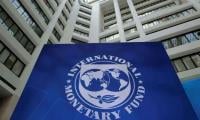ISLAMABAD: Youth are future of Pakistan and their participation in the decision-making process regarding social, cultural and economic matters is vital to not only a sustainable growth and development but also establishment of peace and stability in the country, this was the crux of the four-day first-ever International Student Convention & Expo held here in the federal capital.
The event, organized by the Inter-University Consortium for Promotion of Social Sciences, Arts and Humanities (IUCPSS) in collaboration with COMSATS, Punjab Higher Education Commission, PIPS, United National Information Centre Pakistan, Paigham-e-Pakistan, University of Lahore, Institute of Peace and Diplomatic Studies was attended by students and delegates from around 30 countries.
The main objective of the mega activity was revitalizing the crucial role of youth towards national development, peace building and achieving the sustainable development goals (SDGs). It also aimed at promoting a soft image of Pakista at the international level.
The mega event started with a conference at the COMSATS on the occasion of the International Human Rights Day. United Nations Information Centre Director Vlastimil Samek and COMSATS Rector Dr Raheel Qamar were guests of honour on the occasion. In is address, Vlastimil Samek discussed the United Nation’s role in ensuring human rights in member states. Other speakers urged the students to spread message of peace, tolerance, harmony and co-existence and help eradicate extremism and hatred from the society. The youth speakers shared their views as to how they feel about the United Nations human rights day. During the program, message of UN secretary general regarding human rights day was also shared.
The second event of the series titled ‘Youth and Parliament’ was held at the Pakistan Institute for Parliamentary Services (PIPS), followed by a two-day students convention titled ‘Securing the Future’ at the Pak-China Friendship Centre. The event, attended by thousands of local and international students, encompassed a vice chancellors forum on youth development, diplomatic forum and corner, university pavilion, books pavilion, digital technologies pavilion, tourism and culture pavilion, job fair, career counseling sessions, model UN session, talent hunt, ideas corner, workshops, seminars, sports activities, competitions and many other activities projecting a positive image of Pakistan all over the world.
Addressing on the occasion, Azad Jammu and Kashmir President Sardar Masood Khan highlighted the role of youth and universities in achievement of the SDGs for national development and sustainable future at regional and international levels. With ready access to a huge number of the youth that comprises 60 percent of Pakistan’s population, the universities can influence the youth for orienting them towards achievement of the SDGs, he said.
UN Resident Coordinator Niel Buhne highlighted the need for engaging the country’s youth in constructive activities of national importance to make this huge part of Pakistan’s population an asset. Universities can provide a good conduit between private sector and the educated youth of the country, he asserted.
Minister of State for Interior Shehryar Khan Afridi said the youth are future of the country who have potential and abilities to compete at all levels in the world. He urged the youth to work for humanity. “We need to study humanity because without reading humanity, we cannot make an impact,” he said, adding that portraying a genuine picture of the country before the world was vital to ending the prevailing misconceptions and negativity.
The mega event provided a golden opportunity to the participants hailing from 30 countries to interact with leading personalities and international experts. The participants enjoyed engagement and interaction with a diverse group across the spectrum from academic mainstreams to madrassa students and other marginalized segments.







